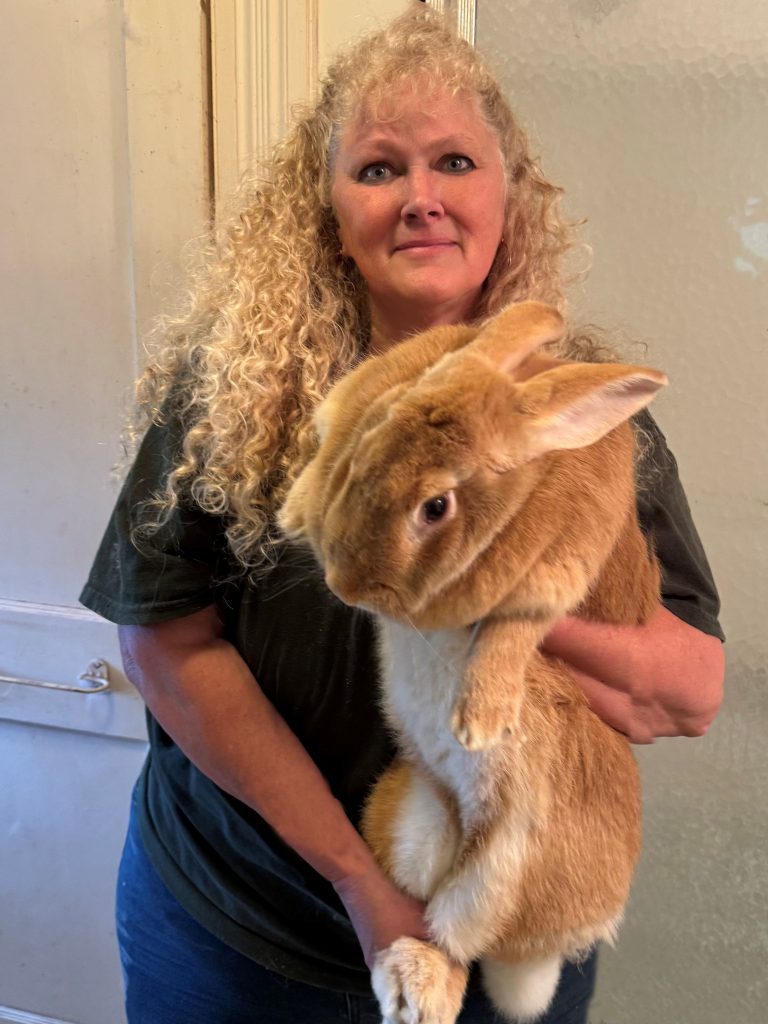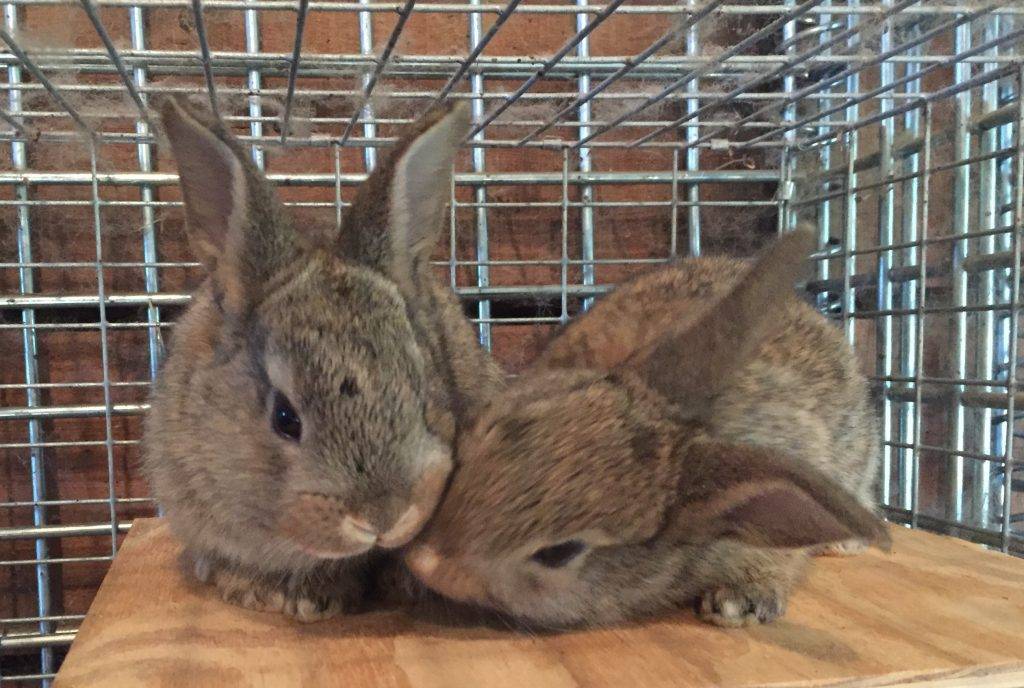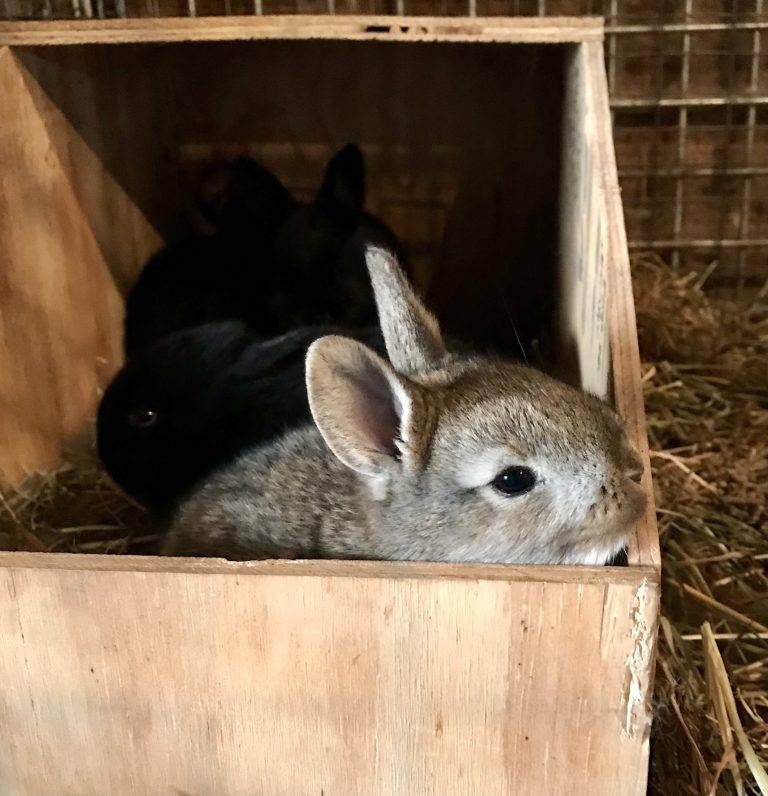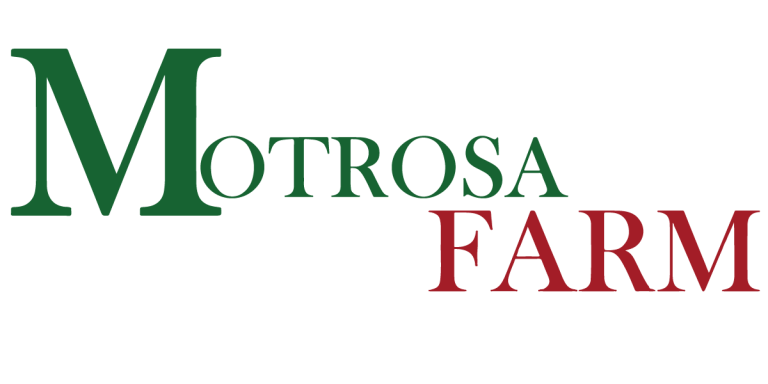The Flemish Giant Rabbitry at Motrosa
We started the Flemish Giant Rabbitry as a means of raising a sustainable meat source. However, these giant rabbits also make docile and gentle pets. We get asked a lot how we can raise rabbits as pets and also as food. The trick for me is to only bond to the breeding does and bucks. If you start sustainable farming with the knowledge that you are going to eat what you grow, you have to accept animal harvesting as the downside unless you are vegan.
Because breeding them as pets or show was not the primary objective we started with, we weren’t concerned about obtaining the pedigree for our purebred stock, nor were we concerned about color correctness. We are now attempting to remedy this in an effort to provide the best quality of pet Flemish Giant moving forward.

What is color correctness? The American Rabbits Breeder Association Standards of Perfection state that the acceptable colors for a Flemish Giant rabbit are solid Black, Blue, Sandy, Fawn, White, Light Grey and Steel Grey. Breeding for color correctness means that you only breed rabbits within their color grouping so as to produce the best, cleanest color possible without smut (brownish cast) or white flecking/lacing. At this time, Motrosa Farm is breeding Sandy and Fawn.
What’s a pedigree? A rabbit pedigree is a means of proving that the rabbit is purebred, as well as show the colors of past generations if color correctness is the goal. A rabbit can have a pedigree (be purebred) but not be color correct so if color is your primary focus be sure to pay attention to rabbits a few generations back as these color traits can still appear in your breeding program. You do not need a pedigree if you just want a pet bunny, or even necessarily to show your rabbit. You do need a pedigree in order to sell a “fully pedigreed rabbit” or to register your rabbit with a breed association. A pedigree can come in any form from a handwritten piece of paper to a fancy template. It needs to include: at least 3 generations on each side with name, ear number, date of birth, color. Also included if applicable is registration number, show wins (called legs) and weight.
About Flemish Giants

Flemish Giants as Pets
Flemish Giants make great pets as long as your prepared for their ultimate size. Does (females) average 12-15 pounds and Bucks (males) mature 15-20 pounds. Some show lines will go upwards of 25 pounds. Flemish Giants grow slowly and do not reach their full size until over a year old. Because of their size, they need larger living quarters and they also eat more than the ‘standard’ bunny.
As with any rabbit, those handled as kits (baby bunnies) will be more friendly than those that are not. To properly socialize your rabbit, be sure that you interact with it daily. It’s important that you house your rabbit where it will be most convenient for you to interact with. If you do not spend a great deal of time outside, why would you put your pet out there?
Flemish Giants as Meat Rabbits
Flemish Giants are not usually the first choice as meat producers as they are very large, grow slowly, and have larger bones than a lot of other breeds. Fryers at 12-16 weeks are a decent size and haven’t cost the homesteader too much feed investment. However, most self-sustaining homesteader breeding rabbits for meat will opt to cross breed the Flemish Giant with New Zealands, Californians or even Rex for a better balance of meat to bone.
Domestic rabbit is a nutrient-dense, lean food, providing upwards of 22 grams of protein per 3.5 ozs. It’s also rich in iron, potassium, magnesium, selenium, B2 and B3. Although generally low in fat, rabbit meat is rich in healthy fats, like omega fatty acid.
Flemish giant litters....
Update February 2026: WE DO NOT HAVE ANY AVAILABLE BUNNIES AT THIS TIME and we have an extensive waitlist (at least 12 people deep). If you want to be added to the list, please fill out the contact form, but it’s going to be awhile.

FAQs for Rabbit Purchases
- Is there a guarantee?
Our rabbits are healthy and you as a buyer are encouraged to look the rabbit over for any signs of sickness before you pay. If, however, your bunny is sick within one week of purchasing and a letter from your veterinarian is provided, we will take the rabbit back and refund your money. We, however, are not responsible for improperly cared for animals. - Will you ship my rabbit?
We prefer to meet buyers at local swaps and/or in private transaction at a convenient public place (I’m partial to using the Tractor Supply parking lot in either Appomattox or Madison Heights but will also meet in Concord, Lynchburg and surrounding areas). We also are willing to work with REPUTABLE transporters and will drive a reasonable distance to meet up with them. The cost of shipping and the cost of meeting the transporter is not included in the price of the rabbit unless stated in writing. - Can I come to the farm?
Sadly, no. For security/safety reasons (yours and ours), insurance reasons and bio-security reasons we do not allow the public to visit the rabbitries in person. For those thinking we are “hiding something” because they are not allowed on the property, please follow Motrosa Farm on social media at the links on this page. We share the good, the bad, and the ugly of farm life. You can also request a video of the animal’s living conditions if it really bothers you. If you are still turned off because you can’t poke around our farm, then this transition is not for you. Have a blessed day. - What forms of payment do you accept?
Cash, PayPal, Zelle, Venmo are all good options. A small deposit is required to hold a rabbit. Transactions are paid in full when we meet or prior to the rabbit being transported.
